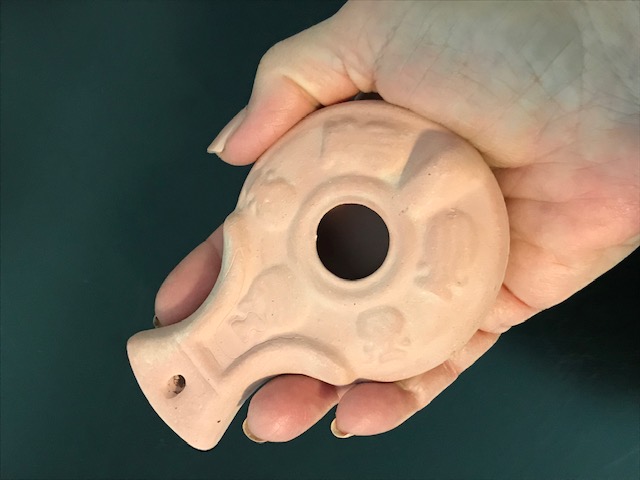These lamps were very small. They were carried in the palm of a person’s hand to light the way before the person.
In Israel today, it’s still pretty easy to buy an ancient oil lamp for not much money. It’s because there were so many of them. Each household would have had at least one for each person. Oil lamps were made of clay. Oil lamps in Israel would not have graven images engraved or raised on the clay for decoration, because images of people or animals were forbidden by the Law of Moses.
These lamps were very small. They were carried in the palm of a person’s hand to light the way before the person.

A copy of an oil lamp from Cyprus.
The wick was inserted into the small hole and the olive oil was poured into the larger hole. The oil in the lamp would keep the wick burning for about one hour. The lamp provided as much light as one candle, or about 13 lumens. One incandescent light bulb produces 100 times as much light. You might get 60 lumens from your cell phone’s flashlight.
So an oil lamp barely enabled a person to see a little ways in front of them. No way they could share that little light with someone else. That the fuel would only last an hour was always on a person’s mind. Would they lose the little light before the Bridegroom arrived? Before they made it to the celebration hall after the Bridegroom invited them? This was a very personal, very precious light, and the fuel was also very precious. You can share light by lighting someone else’s lamp, but then you are on your own. No one is worthy or prepared to meet the Savior on borrowed light.

